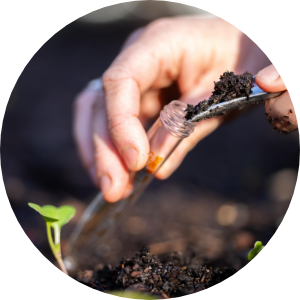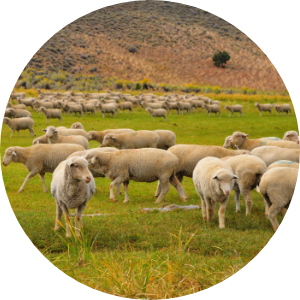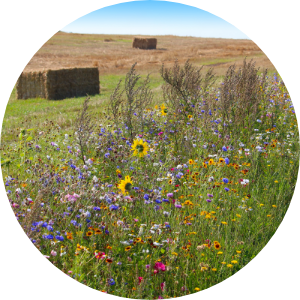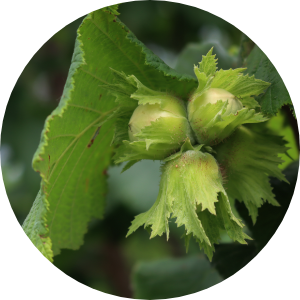Our Land > Sustainable Agriculture
Sustainable Agriculture
Sustainable agriculture uses practices that restore soil, cut emissions, and build a more resilient food system. It helps farms adapt to climate change and stay profitable while protecting water, supporting rural communities, and growing healthy food.
Jump to Section
Explore Our Approach
Overview
Impacts of Climate Change on Farms
Wisconsin’s farms are already feeling the pressure of a warming world. Winters are getting milder, springs are wetter, and extreme weather events are becoming more common. These changes delay planting and harvest, increase nutrient runoff and erosion, and put stress on livestock—especially dairy cows struggling through hotter summers.
Shifting plant hardiness zones are already altering what we can grow and where. Projections from the Wisconsin Initiative on Climate Change Impacts (WICCI) show that, without action, we’ll face even more heatwaves and intense rainfall by 2030.
14M+
Acres of Wisconsin land are used for agriculture
64,000
Farms operate across the state
$104.8B
Is contributed annually by agriculture to Wisconsin’s economy
BENEFITS
Benefits of Sustainable Agriculture
Sustainable agriculture is a win-win for farmers and the environment. It:
- Stores carbon in the soil and lowers greenhouse gas emissions
- Improves soil health, fertility, and long-term productivity
- Reduces erosion and runoff, improving water quality
- Helps protect from drought, floods, and extreme weather
- Strengthens local economies and revitalizes rural communities
PRACTICES
Sustainable Agricultural Practices
Farmers across Wisconsin are showing that climate solutions can start in the soil. By adopting proven, practical techniques, they’re creating more resilient farms and a healthier future for all:
- Perennial cropping to build long-term soil stability
- Agroforestry and rotational grazing to boost biodiversity and ecosystem health
- Smarter manure and fertilizer use to cut emissions and protect water quality
These approaches not only lower a farm’s climate impact—they create healthier, more adaptable operations built to thrive in a changing world.
KEY INITIATIVES
Our Vision for Sustainable Agriculture in Wisconsin
Wisconsin has the opportunity to lead the way in sustainable farming—strengthening our rural economy, restoring our ecosystems, and helping solve the climate crisis. Clean Wisconsin is working to make this transformation a reality through practical solutions, farmer-driven innovation, and bold, science-based policy.

Regenerate Soil, Protect Water, and Store Carbon
Scaling up regenerative practices like reduced tillage, continuous living cover, and nutrient-efficient fertilizer use will improve soil health, cut water pollution, and trap greenhouse gases in the ground—where they belong.

Rebuild Livestock Systems for a Changing Climate
We’re pushing for integrated livestock systems that move animals out of confinement and back onto pasture, reduce liquid manure storage, and lower methane emissions through smart nutrition and better management.

Protect Vulnerable Farmland and Natural Buffers
To safeguard our water and soil, we must conserve at-risk land and protect natural filters—like wetlands, prairie strips, and grass buffers—that trap runoff and shield the landscape from climate extremes.

Grow the Market for Climate-Resilient Crops
Perennial crops like Kernza® and hazelnuts offer environmental and economic wins. They require fewer inputs, protect soil, and open new income streams for farmers ready to lead the transition to sustainable agriculture.

Support Bold, Science-Based Policy
Meeting Wisconsin’s climate goals requires coordinated action across sectors. We’re advocating for policies that provide farmers with the technical support, financial resources, and recognition they need to implement climate-smart solutions and protect our shared resources.
sign up
Join the Fight for Our Land
Sign Up For Email Updates
"*" indicates required fields